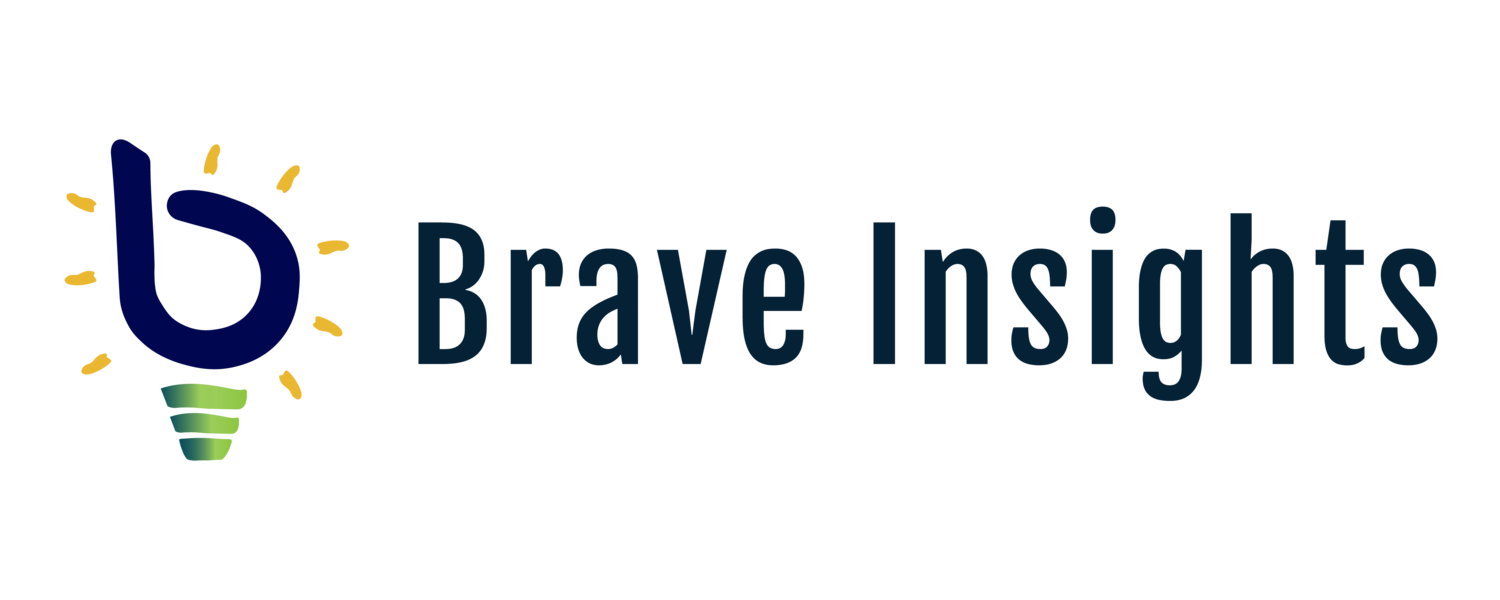5 Key Leadership Trends for 2025: Leading in a Changing World
Five critical traits your leaders need in a complex world of work
Understanding the latest leadership trends is crucial for organisations aiming to thrive in a rapidly changing landscape. The Brave Insights team has been closely monitoring these shifts through our collaborations with clients, alongside our ongoing exploration of leadership literature, blogs, and podcasts. We’ve identified five critical leadership skills essential for an organisation’s success in this dynamic environment.
Is your organisation ready to support a shift from traditional leadership to a more progressive practice of leadership? We've outlined the five key leadership trends that will secure your organisation’s future and your talent.
1: Practice reflective & compassionate leadership
There is a need for more reflective leadership based on authenticity that creates greater engagement. Traditional forms of leadership based on authority and power are increasingly failing to produce the necessary performance desired by many organisations.
With the rise of hybrid work models and shifting social dynamics, leaders must refashion how they exercise their influence.
Key Questions for Leaders:
Are your leaders engaging in high-quality reflection during and after actions to foster authenticity?
Can they communicate with empathy and compassion?
Are they willing to be vulnerable and acknowledge their mistakes?
See how Brave Insights have helped our clients establish a Thriving Leadership Culture here
2: Support team members to thrive (not just survive)
The COVID-19 pandemic emphasised the need for leaders to care for employees across all aspects of their lives. While workers are largely returning to the office, a hybrid model will no doubt continue for some and the workplace has changed irrevocably. Leaders must find innovative ways to ensure their teams are thriving in this transformed workplace.
Key Questions for Leaders:
Do your leaders cultivate trusting relationships with their team members?
Are they creating opportunities for open communication and conditions that promote happiness at work?
Are they willing to challenge existing frameworks to support team members’ growth?
Can they recognise that flexibility is crucial, allowing for varying work styles and preferences?
3: Cultivate a growth mindset
To prosper into the future, organisations must be able to quickly adapt to the ever-changing environments that they operate in. The status quo management style of the past may deliver short-term results but will ultimately leave you and the organisation in a state of decay.
An organisation with better adaptability starts with leaders who have a growth mindset that drives them to constantly seek how to both “do things better” and to “do better things”.
Key Questions for Leaders:
Are your leaders fostering an adaptive culture essential for organisational success?
Do they view their failures and those of others as opportunities for improvement?
Are they comfortable asking questions and embracing curiosity?
4: Develop leadership in others
The quality of leadership in your organisation is the single most important factor in the difference between success and failure. Yet most organisations under-invest in the development of their leadership capacity, and too often (wrongly) prioritise their investment by focusing on individual leader development. We call this the Fundamental Leadership Development Fallacy (FLDF). Instead, organisations need to look at how leadership is distributed and empowered across the organisation and undertake collective leadership development through team coaching and facilitation.
Key Questions for Leaders:
Are your leaders equipped to help teams navigate tension and conflict for the organisation’s benefit?
Can they share and distribute leadership roles across the team?
Do they foster the growth of leaders from within their team?
Are they prioritising team development over individual advancement?
5: Provide opportunities to grow
Talent management and succession planning are among the most challenging development functions within an organisation. With the competitiveness of the current employment market, team members will vote with their feet if they are not given development opportunities and pathways into the future.
Key Questions for Leaders:
Do your leaders recognize the unique talents and contributions of every team member?
Are they clear in communicating and supporting the organisation’s performance management system?
Do they understand that talent development should span an entire career?
Are they seeing development as more than just career advancement, keeping their teams engaged and challenged?
Next steps:
Leadership has never been easy, and as these observations suggest leaders are required to do more, in more complex circumstances.Expectations are higher than ever before and, without support, leaders are struggling.
Brave Insights specialises in empowering leaders and organisations to develop the capacity to grow and meet these challenges through our innovative and supportive leadership development approach.
Learn more about Brave Insight’s Leadership Programs here.
Or book a call with us to learn more about how we can help you adapt to these leadership trends in 2024 or plan now for 2025.

